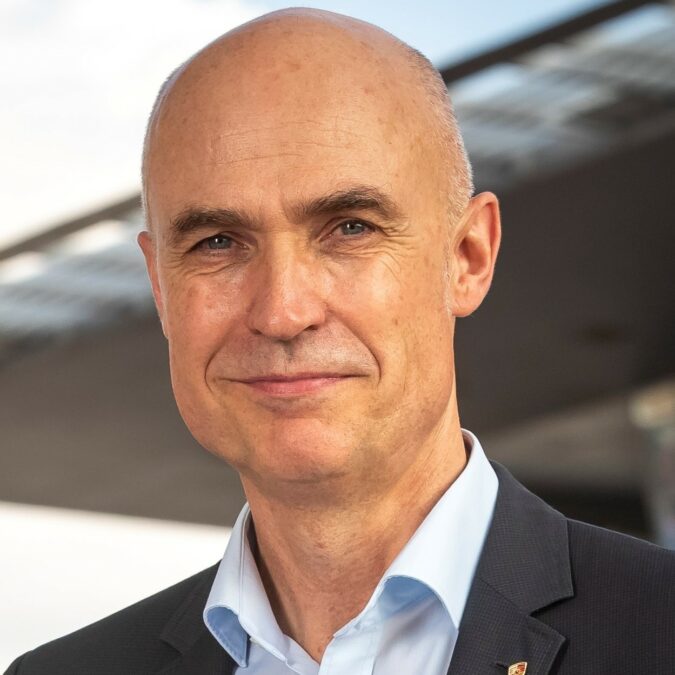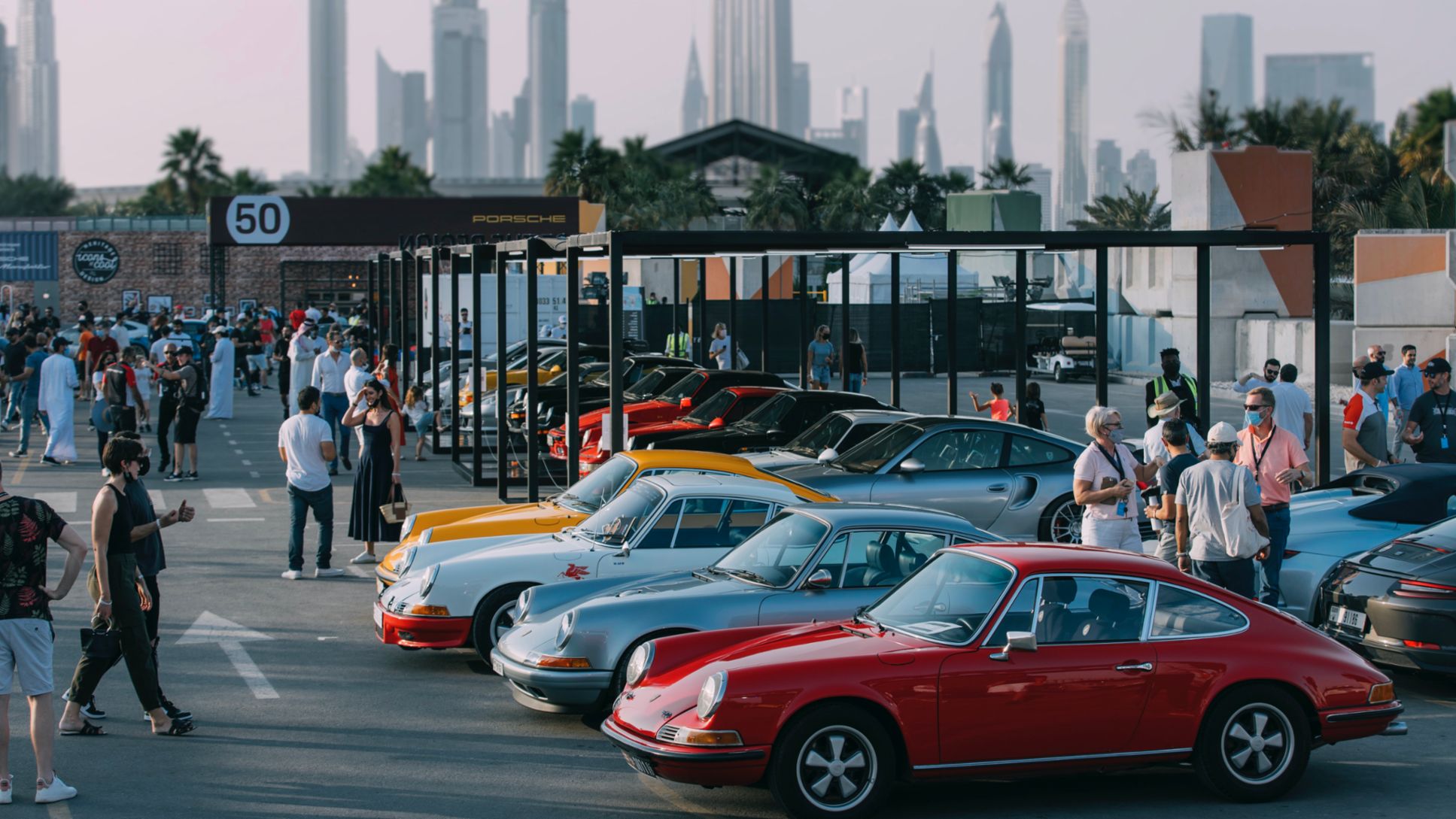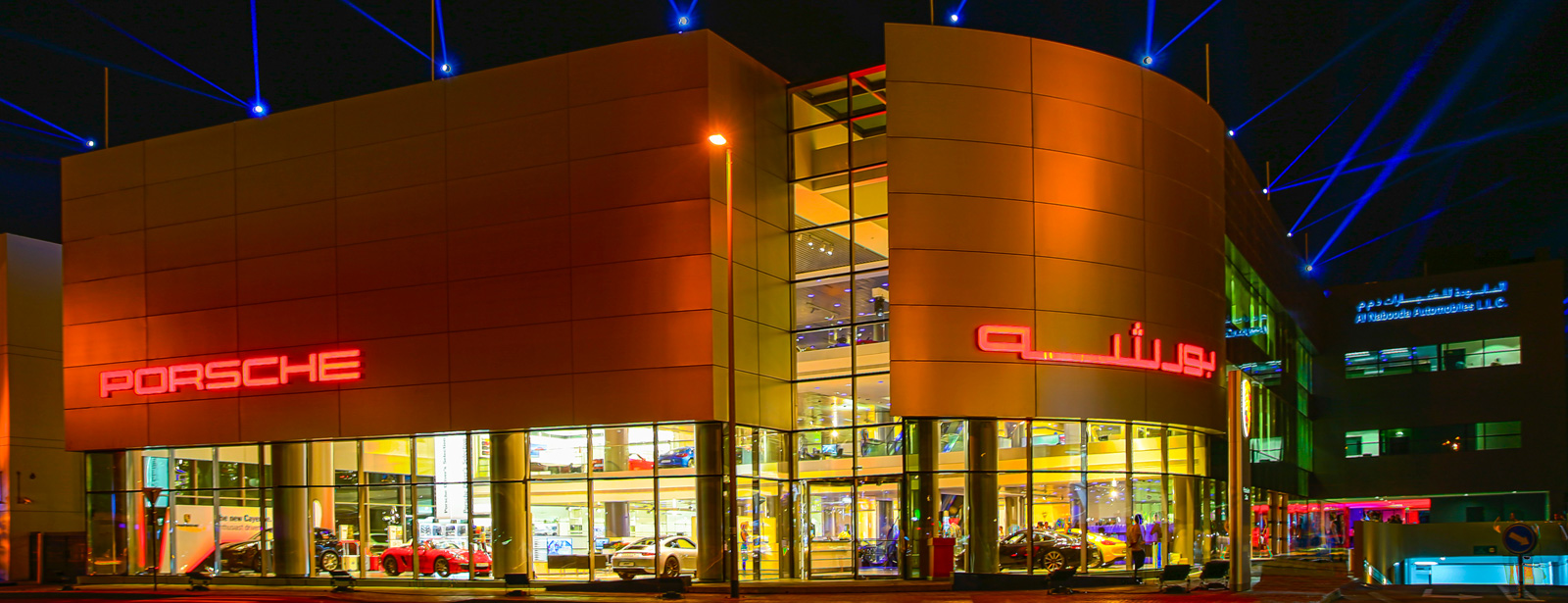DUBAI, UAE — In an era defined by rapid technological advancement and an ever-growing concern for the environment, it’s crucial to stay abreast of the latest trends and plans in the automotive industry, particularly the luxury segment. Dr. Manfred Bräunl, CEO of Porsche Middle East & Africa FZE, recently shared his insights on a range of topics – from the company’s sustainability goals and the demand for environmentally-friendly vehicles, to the impact of global recession and inflation on the luxury car market.
Dr. Bräunl spoke at length about Porsche AG’s commitment to a ‘double-e’ strategy, emphasizing e-mobility and e-fuels. With an ambitious goal of having over 80 percent of vehicles delivered by 2030 being all-electric, he confirmed Porsche’s active role in the industry-wide shift towards sustainability.
Dr. Bräunl also discussed the resilience of the luxury car market amidst economic challenges, revealing that the demand for luxury cars, particularly Porsche’s iconic sports car models, remains strong despite the global recession and inflation.
Touching upon the distinct preferences of Middle Eastern customers, Dr. Bräunl highlighted the region’s demand for a luxurious ownership experience that extends beyond mere transactions. He underscored the importance of brand loyalty and community engagement in the region, reflected in the popularity of events like the Icons of Porsche festival.
Excerpts:
What are your sustainability goals and plans for the GCC and Middle East markets? Do you see a demand for environmentally friendly vehicles?

Globally, Porsche AG has a ‘double-e’ path: e-mobility and e-fuels. Our global goal is for more than 80 per cent of the vehicles we deliver in 2030 to be all-electric.
The commitment to e-mobility is clear, with over 100,000 Taycan all-electric four-door sportscars already produced, and with news of the electrification of the Macan, 718 and Cayenne model lines already announced.
As well as this, Porsche is investing in e-fuels. There are more than a billion existing vehicles worldwide. They will be on the roads for decades to come.
E-fuels are an effective, complementary solution in this regard. They can enable all vehicles to play a role in reducing CO₂ – regardless of the powertrain type. Combustion engines can be powered with e-fuels in a virtually carbon-neutral manner.
In terms of the Middle East, we have seen strong demand for the Taycan across the GCC region since its launch here. Taycan owners appreciate it is a true Porsche and offers all the luxury and performance one expects from a four-door Porsche sportscar.
With the global recession and inflation, do you see an increase in demand for clients to buy luxury cars, or are they shifting to middle-class vehicles?
Demand has been very strong in recent years. We continue to see strong interest in all models, in particular the 718 and 911 two-door sports cars. Demand continues to exceed supply, and we manage this carefully to ensure we get cars to their new owners as quickly as is possible in the current environment.
What do clients look for nowadays when purchasing a luxury car in the GCC?
People are drawn to Porsche because we represent a unique offering in the automotive market. We offer a special combination of luxury and performance, and that has proved to be popular in this region.

Middle Eastern customers look for a luxury ownership experience, not merely a transaction. They like to really ‘buy into a brand’ and this is why you see so much passion for Porsche in this region at events such as our Icons of Porsche festival, where over 15,000 people attended last November. They dream of owning a Porsche and becoming part of our community.
Is the region’s demand for customized cars still high, or has it been impacted by the global economic crisis?
The demand for our customization programs, highlighted by our Porsche Exclusive Manufaktur offerings, has only increased in recent years. The Porsche Middle East & Africa region, which also includes India, is the largest in the world for this program. Elements such as our ‘Paint to Sample’ are also extremely popular here. It is great that many of the Porsche sports cars that come to this region are true one-offs due to the personalization and customization that owners include in their orders.
What are the current challenges in the luxury market, and what are your expectations for the GCC luxury car market in 2023?
For us demand remains strong and the supply situation, although improving, is still somewhat complicated due to the global situation. There is a lot of uncertainty about what may lie ahead from an economic perspective, but my personal opinion is that the Middle East is in a strong economic position relative to the rest of the world.
Could you give us some insights about Porsche’s record global growth in the 2022 fiscal year, as well as its performance in the Middle East (GCC) in 2022?
Porsche AG globally delivered over 300,000 cars in 2022, an increase over the prior year of 2.6 per cent. The Porsche Middle East & Africa region, which also includes India, delivered 8,217 cars representing an increase of over 20 per cent compared to 2021.
The GCC as a region has further growth potential, so we watch each market very closely as we aim to grow in a sustainable way. Ultimately, given the strong demand, our sales are a measure of the supply we receive from the Porsche factories, as demand remains strong. The growth is also a result of the excellent work by all our importers across the region, and the hard work of their teams in each of the Porsche Centres.
What are the new technologies that Porsche is currently working on?
Enormous focus continues to go into e-mobility and the electric powertrain technology we develop. Beyond this, technologies that enhance the ownership and driving experience, especially when it comes to connectivity, are another priority. Ultimately, the important thing to point out is that our cars continue to evolve, but they remain true Porsche sportscars.
What are the new models that are popular in the GCC region, and are they the same as the global models, or is there a difference in demand?
The model mix in the GCC markets is relatively similar to the global picture, but there are regional trends. Our best-selling model line is Cayenne, both in the region and globally, but one example of a regional trend is that the Cayenne Coupe body shape is very popular here. Porsche owners in the GCC are perhaps more likely to order a more powerful model grade – our GTS and Turbo models across the range are always in high demand in the Middle East.








